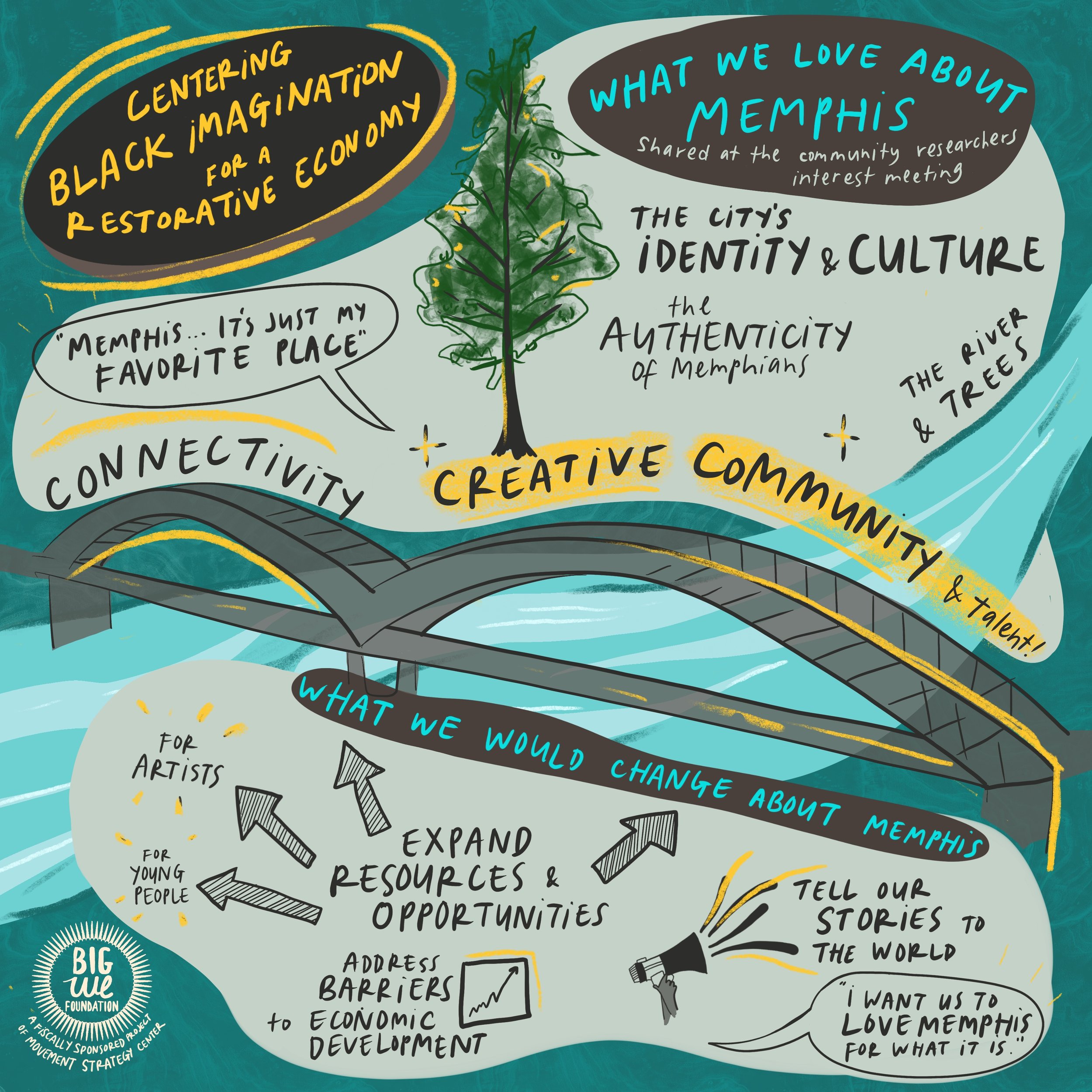Restorative Economics
Designed to address the racial wealth gap, this body of work supports community ownership/governance, community wealth building & restorative development. Derived from the Restorative Economics work of Nwamaka Agbo, the restorative economics portfolio focuses on the fiscal healing & restoration of under-resourced communities.
Restorative economics centers the fiscal healing and restoration of vulnerable communities by investing in strategies that create shared prosperity and self-determination for a just transition to the next economy.
Using Cultural Strategy, storytelling, and economics for transformation
Cultural and narrative strategies are finding their way into mainstream conversations and popular culture. They have not, however, found their light in a conversation about economics and the restoration of community wealth stripped by hundreds of years of forced free labor and kept at bay by discriminatory public policy and institutionalized racist, classist practices. For southern communities, strategies built around story and creativity quicken and deepen the transformation that we seek. The use of stories in the southern cultural context speaks to the tradition and acumen of Southern communities using stories to convey history and strategies for survival and liberation.
Southern Shift Initiative
The Southern Shift Initiative Memphis Cohort
Using BIG We Foundations’s (BWF) Culture Shift framework to share stories, engage community, and embody a vision of shared liberation, the program supports a cohort of 15 cultural workers, artists, and creative entrepreneurs already working to restore Memphis’ neighborhoods.
A Restorative Economics program of BIG We Foundation creating cultural and economic drivers grounded in Black imagination.
The design of The Southern Shift initiative (SSI) is grounded in three ideas: first, that culture is a primary driver in the work of long-term sustainable social impact; two, that creatives are best positioned and best equipped to shepherd a shift in culture, especially when they are grounded in and a part of impacted communities; and three, impacted communities must have economic sovereignty and the resources needed to heal and reimagine their communities.
The goal of the work is to create and employ an embodied cultural framework to shift the narrative and mechanics of local economies, specifically to build African American communities that are safe, loving, joyful, and abundant.
Built upon Big We Foundation’s Culture Shift model, The Southern Shift Initiative employs the tenets of cultural strategy, restorative community development, and community wealth building to transform what is possible from one community to the next.
BIG We Foundation Research Project
Centering Black Imagination for a Restorative Economy: Memphians Working Toward Self-Determination, Cooperation, Cultural Wellness, and Abundance
In January 2023, BWF began its first formal research project under its Restorative Economics priority area. The research team includes Sankofa Research Institute, Dr. Stacey Sutton, and Memphis-based community researchers. The study aims to identify the Black cultural entrepreneur ecosystem in Memphis, examine levels of institutional support, and show how Black cultural entrepreneurs, grounded in Black imagination, are important cultural and economic drivers for the City of Memphis.
BWF is a member of The Wallace Foundation Field Studies cohort. The BWF research project is part of The Wallace Foundation’s investment in the arts ecosystem. For a complete list of the organizations in this cohort, click here.
What is community-based participatory research?
The research team created a word cloud to visualize Black imagination during the first weeks of community researcher onboarding.
To learn more about this work contact research@thebigwe.com
Illustrated by Ro Adler from Illustrating Progress
Seeking to develop a project that is relevant and responsive to Black cultural entrepreneurs and their local ecosystem in Memphis, BWF employs a community-based participatory research (CBPR) approach that prioritizes collaboration, capacity-building, equity, and social action in the research process (Olshansky 2008; Elias and O’Neil 2001).
Community researchers will assist with secondary and primary data collection to 1) improve the quality of the research, 2) enhance the relevance of the project to the needs of the community, and 3) emphasize creating knowledge that informs social action (Israel et al. 2008)







